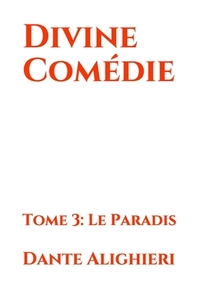Take a photo of a barcode or cover
adventurous
challenging
reflective
slow-paced
challenging
dark
informative
slow-paced
Plot or Character Driven:
N/A
Strong character development:
No
Loveable characters:
No
Diverse cast of characters:
No
Flaws of characters a main focus:
Complicated
In truth, I didn’t finish - I fought my way through to the end of the Inferno (ha) and then gave up.
In fairness to Dante, it is probably more readable in the original, because there, the poetic merit probably compensates a good deal for the tiresome self-indulgence of the author. I attempted to read this book because of the tremendous impact it has had on Western culture and tropes, and admittedly Dante’s world-building is probably on par with someone like Tolkien.
Having been pleasantly surprised by “Candide” just before I started this, I expected more of the same - a gripping read. But the “Comedy” in the title misleads - though of course it does contain elements of satire and humour (much of which just wasn’t that funny to me), it is more comparable to a religious text, which of course in a sense it is.
At least to the modern reader, it isn’t something you can really just read, it’s a book you would need to study and interpret. I constantly found myself referring to the notes section, and I learnt lots of things about late mediaeval Italy in general, and Dante’s life in particular. Which I wouldn’t have minded had that been what I had set out to do, but it wasn’t. I was looking to read for pleasure, not learning. Of course, with some books you can do both, but for me this just wasn’t one of them.
In summary: Unless you’re already intimately familiar with both Dante’s biography and this particular period of Italian history, this is not a book you can really read for pleasure. If you do want to learn about that though, and don’t mind “studying” this book rather than simply reading it in a leisurely way, then I’d really recommend it. If not, you’re better off just reading the Cliffs Notes summary of each canto.
In fairness to Dante, it is probably more readable in the original, because there, the poetic merit probably compensates a good deal for the tiresome self-indulgence of the author. I attempted to read this book because of the tremendous impact it has had on Western culture and tropes, and admittedly Dante’s world-building is probably on par with someone like Tolkien.
Having been pleasantly surprised by “Candide” just before I started this, I expected more of the same - a gripping read. But the “Comedy” in the title misleads - though of course it does contain elements of satire and humour (much of which just wasn’t that funny to me), it is more comparable to a religious text, which of course in a sense it is.
At least to the modern reader, it isn’t something you can really just read, it’s a book you would need to study and interpret. I constantly found myself referring to the notes section, and I learnt lots of things about late mediaeval Italy in general, and Dante’s life in particular. Which I wouldn’t have minded had that been what I had set out to do, but it wasn’t. I was looking to read for pleasure, not learning. Of course, with some books you can do both, but for me this just wasn’t one of them.
In summary: Unless you’re already intimately familiar with both Dante’s biography and this particular period of Italian history, this is not a book you can really read for pleasure. If you do want to learn about that though, and don’t mind “studying” this book rather than simply reading it in a leisurely way, then I’d really recommend it. If not, you’re better off just reading the Cliffs Notes summary of each canto.
Graphic: Body horror, Confinement, Death, Gore, Homophobia, Sexual content, Violence, Blood, Excrement, Religious bigotry, War
slow-paced
challenging
reflective
slow-paced
Plot or Character Driven:
Plot
Strong character development:
Complicated
Loveable characters:
Complicated
Diverse cast of characters:
Complicated
Flaws of characters a main focus:
No
adventurous
reflective
slow-paced
Plot or Character Driven:
Plot
Strong character development:
No
Loveable characters:
Complicated
Diverse cast of characters:
No
Flaws of characters a main focus:
Yes
challenging
slow-paced
Plot or Character Driven:
N/A
Strong character development:
No
Loveable characters:
No
Diverse cast of characters:
No
Flaws of characters a main focus:
No
⭐️⭐️⭐️⭐️⭐️
One of the defining books in the literary canon, it’s impact on culture and perception and visualisation of the devilish and divine, as well as it’s theology, philosophy, it’s humanity, and sheer talent at parts warrants it be a mandatory visit to everyone.
Going to review this in three,
Inferno: very cool, would make a good Netflix series, amazing visualisation of hell, is the base from which all references to hell are understood and all depictions are based. Written very easy to understand but very well, lots of references.
Purgatorio: two bros climb a mountain, not as striking but beautiful, has a lot more to discuss— the scene where Dante struggles to climb and Virgil looks down at him and tells him that the further he climbs the easier it will become is absolutely inspiring— I think this book is very inspirational for those wanting to break from sin, and thats what Dante did.
Paradisio:
One of the defining books in the literary canon, it’s impact on culture and perception and visualisation of the devilish and divine, as well as it’s theology, philosophy, it’s humanity, and sheer talent at parts warrants it be a mandatory visit to everyone.
Going to review this in three,
Inferno: very cool, would make a good Netflix series, amazing visualisation of hell, is the base from which all references to hell are understood and all depictions are based. Written very easy to understand but very well, lots of references.
Purgatorio: two bros climb a mountain, not as striking but beautiful, has a lot more to discuss— the scene where Dante struggles to climb and Virgil looks down at him and tells him that the further he climbs the easier it will become is absolutely inspiring— I think this book is very inspirational for those wanting to break from sin, and thats what Dante did.
Paradisio:
Plot or Character Driven:
A mix
Strong character development:
No
Loveable characters:
No
Diverse cast of characters:
No
Flaws of characters a main focus:
No
A few weeks ago someone asked a crowd of people if any had read the Divine Comedy. I was among several that raised their hands (okay so I was cheating, because I was in the middle of it, not finished, but that's beside the point). Then he asked which of us had actually understood it. I was surprised at that. Maybe that guy was reading a poor translation or a bad edition. This is an Everyman's Library edition, translated by Allen Mandelbaum, who won a National Book Award for his translation of Virgil's Aeneid. BN.com tells me he also has a verse translation of Ovid's Metamorphoses out, which I'll have to check out some time. I have a Ted Hughes translation, but it's not in verse.
Anyway, I think most people are more familiar with the Inferno and the circles of hell, and of course there's a new video game out, too, but I don't think it's going to drive Dante's sales. The basic story, of course, is that Dante has been granted special dispensation via the intercession of his deceased love, Beatrice, to visit hell, purgatory, and heaven and then return to earth to write about it. But there is so much going on in the story that copious endnotes -- 234 pages of them -- are needed to fully grasp the details. You need the endnotes to understand some semantics, refresh your knowledge of mythology (Dante references Ovid a lot, which is why I picked up my Hughes translation this week to restart it), and for explanations of who many of the people in the story are. That's because Dante wrote about a lot of contemporary political and church leaders. He was in exile when he wrote the Comedy, and I don't fully understand the intricacies of the politics of the time, but it seems that the exile was at least in part the results of accusations of corruption. Mandelbaum says Dante hoped writing this epic poem would turn him into a kind of hero and allow him to return home.
It's hard to imagine a similar situation in contemporary times. First of all, that kind of writing is hard to find. Epic poetry doesn't get much attention. Maybe Stieg Larsson's Millenium Trilogy, because it's been getting so much attention... but I digress. It's fun to think about, though, that literature could be the way to win your way back into society.
Bottom line, everyone should read the Divine Comedy in order to really be well-educated, and forget all the stupid English-class memorization of which sinners belong to which circles of hell. Appreciate the three books as a whole, and get a good translation with lots of notes -- like this one.
Anyway, I think most people are more familiar with the Inferno and the circles of hell, and of course there's a new video game out, too, but I don't think it's going to drive Dante's sales. The basic story, of course, is that Dante has been granted special dispensation via the intercession of his deceased love, Beatrice, to visit hell, purgatory, and heaven and then return to earth to write about it. But there is so much going on in the story that copious endnotes -- 234 pages of them -- are needed to fully grasp the details. You need the endnotes to understand some semantics, refresh your knowledge of mythology (Dante references Ovid a lot, which is why I picked up my Hughes translation this week to restart it), and for explanations of who many of the people in the story are. That's because Dante wrote about a lot of contemporary political and church leaders. He was in exile when he wrote the Comedy, and I don't fully understand the intricacies of the politics of the time, but it seems that the exile was at least in part the results of accusations of corruption. Mandelbaum says Dante hoped writing this epic poem would turn him into a kind of hero and allow him to return home.
It's hard to imagine a similar situation in contemporary times. First of all, that kind of writing is hard to find. Epic poetry doesn't get much attention. Maybe Stieg Larsson's Millenium Trilogy, because it's been getting so much attention... but I digress. It's fun to think about, though, that literature could be the way to win your way back into society.
Bottom line, everyone should read the Divine Comedy in order to really be well-educated, and forget all the stupid English-class memorization of which sinners belong to which circles of hell. Appreciate the three books as a whole, and get a good translation with lots of notes -- like this one.



